While I was back home for a few weeks rest some articles caught my attention and they serve as a useful point of departure to evaluate where we are at the start of 2011.
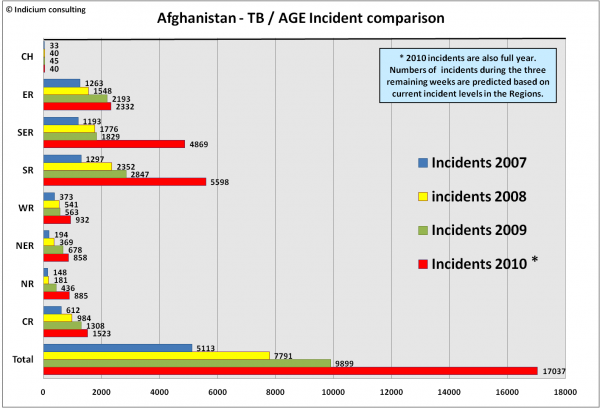
The American military is under significant strain after almost a decade of fighting. This is common knowledge yet it remains difficult for those outside the military to gauge the true cost fighting the Long War. A few weeks back Richard Cohen at the Washington Post penned an opinion piece reflecting the typical liberal view on our military which can be found here. He opened his piece with this sentence:
“I present you with a paradox. The U.S. Army that fought the Vietnam War was reviled, not spit upon (that’s a myth) but not much admired, either. In contrast, the Army of Iraq and Afghanistan is embraced and praised.”
I hate it when liberal commentators dismiss inconvenient truths with “that’s a myth”. From Rick Atkinson’s book The Long Grey Line we take up the story of Army Captain Tom Carhart West Point class of 66 (pages 324 & 325):
“Still in uniform, he was strolling through the O’Hare terminal in search of a telephone when group of hippie girls darted up and spat on him. The shock and pain could have not been more intense if they had slashed him with knives. Reeling with surprise and uncertain what to do, he did nothing.”
I’ve read dozens of accounts of Vietnam veterans being spit upon when they arrived in civilian air terminals on their way home, but I’m touchy about the subject so the Cohen comment irritates me.
Cohen went on to point out that the military of today is removed from society at large, is composed mostly of southern white guys and is effective. It is so effective that it can be deployed indefinitely and so divorced from the citizens that we can now engage in perpetual war. Few of our elected leaders have served or understand the military which is (according to Cohen) so impressive that it is “awfully hard for mere civilians – including the commander in chief – to question it.” I have seen this same theme repeated in the liberal press for 20 years.
The military does what it is told to do and bends over backwards to fall in line with the current thinking of the National Command Authority. Examples of senior military leaders rushing to embrace the latest PC fad which is being forced down their throats are too numerous and depressing to cite. Our military is in great disarray, unable to on the important it is focused on the unimportant; Mr. Cohen’s concerns about an “Uber effective military full of southern whites” is ridiculous. But an army that can fight for 20 years without a declaration of war while civilian life back home continues as normal? That cannot be a healthy thing for a free peoples on general principal alone.
This month’s Atlantic Magazine has an interesting article by former Air Force intelligence officer Tim Kane titled Why Our Best Officers Are Leaving. The bleeding of talent seems to be a problem that crops up on a regular basis within the military. I remember listening to a talk by Sen Jim Webb at the Naval Academy in 1996 where he pointed out that 53% of the post-command aviation squadron commanders had retired after their tours because they were disgusted with the senior leadership of the Navy. His speech, which almost caused a fist fight between then Secretary Webb and one of President Clinton’s National Security staffers, can be found here and is interesting reading when contrasted with the article from Atlantic.
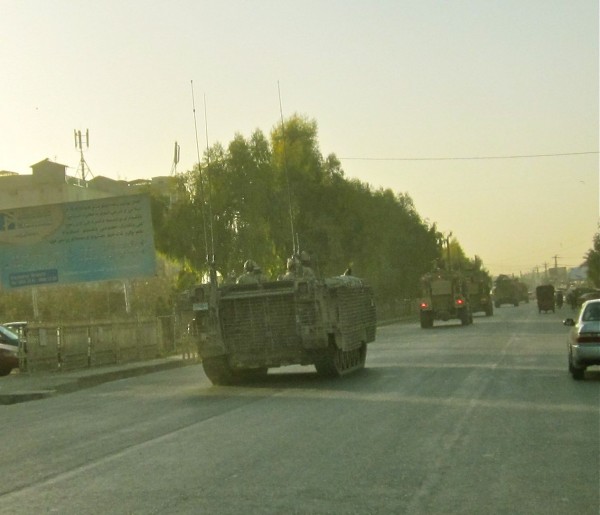
I think Tim Kane is onto something:
“Why is the military so bad at retaining these people? It’s convenient to believe that top officers simply have more- lucrative opportunities in the private sector, and that their departures are inevitable. But the reason overwhelmingly cited by veterans and active-duty officers alike is that the military personnel system does not recognize or reward merit. Performance evaluations emphasize a zero-defect mentality, meaning that risk-avoidance trickles down the chain of command. Promotions can be anticipated almost to the day regardless of an officer’s competence so that there is essentially no difference in rank among officers the same age, even after 15 years of service. Job assignments are managed by a faceless, centralized bureaucracy that keeps everyone guessing where they might be shipped next.”
That was not my experience in the Marines but I’ve been retired for 10 years so my experience may not be relevant. Our military is being asked to accomplish a very difficult mission while simultaneously being forced to absorb a radical change in its culture. If Tim Kane is on target then I suspect our military is heading for some very hard times and that is not good for our country or the rest of the world. National Reviews’ John Derbyshire spoke with great insight about the change being forced on our military in his podcast a couple of weeks back – we join Mr. Derbyshire in mid rant:
“The downward side of our military from a formidable fighting force with an ethos of service, sacrifice, comradeship and manliness to a social welfare organization with an ethos of multicultural cringing and pandering. Or to put it another way, from an instrument for winning wars to an instrument for celebrating the moral vanity of our ruling class.
Our military today Consists of a few lethal units of dedicated fighters, in the finest military tradition, embedded like steal splinters in a bun in a great soft doughy mass of flabby time servers, single moms, diversity enforcers, touchy yet untouchable Muslims, Oprhafied weepers and rejects from other kinds of government work.”
That would be funny were it not so true. I have addressed risk aversion many times in past posts. That this remains a concern after almost a decade of intense combat operations in two different countries is disturbing. By now one would think that the value of innovation and risk taking in the spirit of the British SAS motto “Who Dares Wins” would be recognized, valued and rewarded. But it’s not and that may be because there is no “win” to win here.
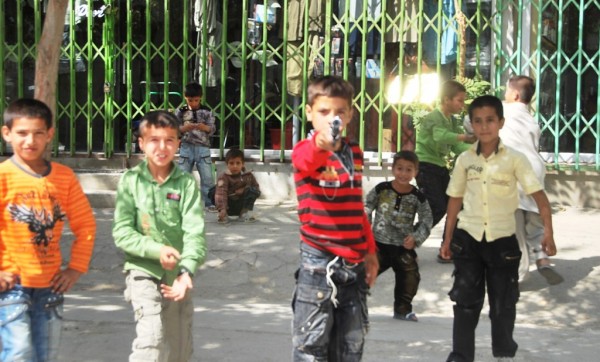
We can drive the Taliban out of areas they once dominated with the sustained commitment of infantry and keep them out. We can train Afghan security forces and despite the mixed results we have fielded some good units. I saw a dismounted ANA patrol the other day who looked to be as switched on and professional as an American patrol. ISAF forces in the south have clearly gone on the offensive and are off the FOB’s protecting the population but they cannot generate the social capitol required to “win”.
We’re not fighting a top down ideology which is incompatible with western interests, instead we’re fighting an insurgency of Islamic insurgents in a their home Islamic land. Infidels are never going to capable of defeating Islamic insurgents in their home court. You could beat the Nazi’s in Germany or the Communist in Cambodia without having to fight the people too because they were not all nazis or communists first, they were Germans or Cambodians. We’re fighting a bottom up ideology fueled by the religion from which our enemies (and allies) derive their identities. We can never get enough social capitol to “win” because we’re not Muslims. We can’t separate the Taliban from the people nor can me reduce the attractiveness of jihad against infidel foreigners because we do not have the juice where it counts – with the people and with the Ulema (religious leaders).
This is where having the military Richard Cohen thinks we have would come in handy. Professional Legions accustomed to incessant campaigning are probably better suited for hard fighting in limited wars on foreign shores. They may better understand that they fight for each other when they are sent into battle while having little concern about where they are fighting or why. High intensity limited warfare is no place for a risk averse commander who is concerned with not making mistakes or avoiding battle. This is going to be a long year of heavy fighting and it is important that we inflict serious losses on the Taliban fighters who take us on because that is the only way we can drive the level of violence down.
I have little confidence in reaching an acceptable end-state but having seen first hand the progress in Marjah and Nawa it seems possible to pacify the areas we are currently clearing thus avoiding three years of heavy combat. That’s the best we will be able to do but it can only be done by those tough splinters John Derbyshire describes. Instead of valuing and supporting those splinters our military and congress is going to ruin them if they don’t stop with the social engineering to focus on the tasks at hand. But we all know that’s not going to happen so I guess we are now living in interesting times.
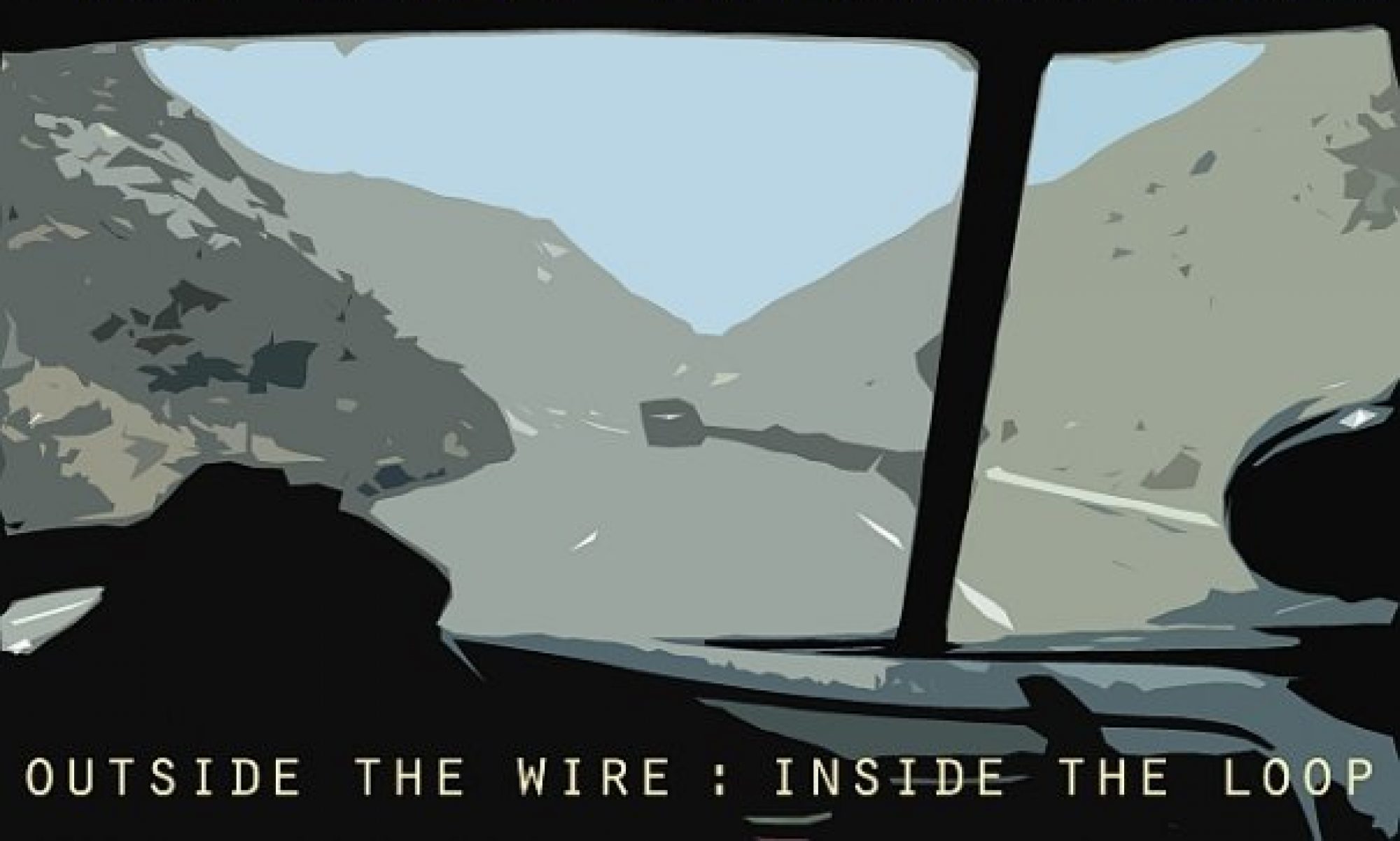
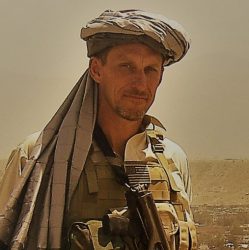

The US ground combat forces are simply not suited for long term combat and everyone singing the praises of COIN should realize the tool is not fit for purpose. Most of the blame for the Iraq and Afghan debacles can be attributed to a bloated officer corps that generally puts career over victory.
The ability of the US military (the vast majority of ISAF mirrors this) to conduct long term combat operations has steadily decreased as it has become more “professional”. As it’s officer corps has become more “educated” (generally meaning civilian qualifications designed for post service careers and ticket punching) it’s ability to fight has gone down. As it’s members concentrate more on careers the capacity and willingness to do what it takes to end wars has largely vanished.
A carefully designed PR campaign (Barry McCaffery is the best at this having never met a general who wasn’t brilliant) has convinced large portions of the US public that not only does the officer corps know what it’s doing but it’s members are “the best of the best”. This of course means if Captain X is great his bosses bosses must be near super human and therefore above question.
The truth is that the officer corps, which makes up the largest % of the total force it ever has, is on a normal bell curve and the majority of officers are at best “average” with half being below average. Ditto for generals. The chances of getting to LTC is now over 83% so at least 50% of LTCs were average or below average majors which explains quite a bit about why we are where we are.
To keep the promotion train going at the rate required to give all these officers a chance to punch their ticket good company and battalion commanders are regularly replaced by folks who are thought to be less capable. We wouldn’t accept this for high school football coaches but for a military in war its apparently OK to not have your best commanders in the field in command.
If the military is tasked with conducting future long term combat operations (probably not a good idea) it should look at changing the officer corps to decrease numbers, increase quality, stop non-technical graduate education, reduce careerism (80-90% of former general officers work for defence contractors) and put the emphasis on command. I don’t expect DOD to realize it has a serious problem with the quality of the officer corps and for things to continue as is.
Bob Greene wrote a very good book about how soldiers were treated upon returning from Vietnam. It is called “Homecoming” and is filled with personal stories. Sorry Mr. Cohn, it was no myth.
I take no joy in penning my thoughts about our military. Returning from my second and final tour of Nam in the summer of ’67 I was confronted both in Calif. and Penn. airports while in uniform.
It’s so important to have gays in our military, out and about. Now one reads how women need to be in active combat.
Oh, the many joys that come with raising one’s right hand and taking an oath to serve! Got problems with recruitment, do ya?
We have worn out equipment, rotated our troops ad infinitum, and all those super smart (now senior citizens…hell no, we won’t go, do your own thing, sex, drugs and rock ‘n roll) who ran from active military service more than 40 years ago telling us how to fight, how to win, how to live and how to respect and worship their perspectives on every subject before the American people…what’s a real Warrior to do?
Support those presently in uniform, those who are real veterans, and those politicians who know when you send our sons and daughters to fight and die, you send them to win as rapidly and as completely as possible!
Diversity has no place in war! Nor does a marriage with the Peace Corps to our Military!
If you doubt me, then find those two videos of General Casey addressing “Meet the Press” and the Fort Hood troops after his Major Hasan’s murdering rampage on behalf of all muslims who hate America.
My generation needs to get off the stage!
Malignant narcissism needs to say bye bye, sooner, rather than later!
1. Wiped off mythical spittle twice.
2. First time in New Orleans prior to departure.
3. Second time in SF Int’l Airport, after processing at Travis AFB.
4. First time, was so surprised, did nothing.
5. The second time, despite warnings, was another matter. Spent an hour in a small room, waiting for the local and military authorities to decide what action they were going to take.
6. Wound up being released and wandering off to catch my flight in a spit flecked khaki shirt.
7. Find Derbyshire’s commentary troubling.
8. Manliness is anathema to the folks downtown in DC. A man might just tell them to shove their nonsense.
9. The Bun, forty years back was bigger than at present, the steel splinters unmotivated and cynical about their missions.
10. Careerism has been a problem for the military since the post-civil war era.
11. Pandering to whiny minorities has become a tradition of some standing. Welcome to the newest excuse to run to the IG, EOO, or whatever in protest over fitreps, unpleasant duties or personal conflicts.
12. Good commanders try to work around this stuff -and always have. Just another stone in the CO’s ruck.
13. Was very discouraged about the US military after VN. At 20, saw all the dark sides.
14. Second go-round, served with several foreign forces. Realized that, as bad as my humpty unit was, it was still better than any of the foreign military units I worked with.
15. Today’s military, for all its short-comings, is a more capable organization than its VN-era predecessor. Troops are better quality. Equipment is better. Training and doctrine are improved.
16. Whether this fairly sharp tool is used for tasks it is capable of accomplishing is another question -time will tell.
17. For what it’s worth, VN 40 years later: houses have AC, people are driving mopeds, fat kids are eating reduced calorie school lunches -and their memory of their former oppressors is generally favorable, despite government propaganda.
18. Many geographic and social differences. I know.
19. What #17 instructs me is that I and most of the principals in your venture will be long dead before the truth if its outcome be known.
V/R JWest
wow jwest RWICE !! feel victimized I mean what are those odds
1. Thanks for kind comment.
2. Felt a lot more victimized trying to pick up women, me wearing a G.I. haircut.
3. Through college on the G.I. Bill, hid the fact of my military service -big turn off for the ladies.
4. Wore my hair longish and discarded anything with a military connection. Was sex a motivating factor? Damn right -had few deep convictions other than booze and a shot of leg were good things.
5. Sucks when that changes.
V/R JWest
I read this and other blogs to try to keep track of what is really happening in Afghanistan and Iraq.
I have a question though. Are there any liberal in the war fighting business? Is DADT really about gays or is it liberals?
The NYT has a decent blog so I assume there must be some out there in places other than “the liberal media”. I guess all media except blogs and Fox News are liberal, while all blogger and military members are conservative.
Either that or there is a whole lot of stereotyping going on.
For whatever its worth there is what I term a Mil-Left blogging community. It can be further broken down into a loyal Mil-Left and disloyal Mil-Left.
Because its all George W Bush’s fault that Nolan Ryan threw 301 strike outs in 1989, and “surge” is a dirty word in Iraq but not in Afghanistan, or something like that…
TRASH
DAY,
R
After two tours in Afghanistan, the last during the summer of 09 when the American surge started in earnest, my feeling is that we are finally on the right track. In the summer of 06, when we spent our time driving from village to village, the conversation with the village elders went something like this: “What do you need?” “Security”. Long pause. “Well, how about a nice white school?”. The moral is that until we learn to address people’s basic needs, we won’t be able to get anywhere else. The right thing to do in 06 would have been to arm the villagers, help them build walls and ditches around their villages, and leave a squad with them to train and assist. Instead, we burned up time and effort trolling for Taliban in the mountains and conducting massive battalion-sized sweeps. Funny thing – the Taliban read (and executed) the Viet Cong playbook; we never read the after-action reports from Viet Nam. We could have learned a thing or two, and probably spared some lives, by listening to the veterans from the 60’s.
lib ·er ·al (lbr-l, lbrl)
adj.
1.
a. Not limited to or by established, traditional, orthodox, or authoritarian attitudes, views, or dogmas; free from bigotry.
b. Favoring proposals for reform, open to new ideas for progress, and tolerant of the ideas and behavior of others; broad-minded.
c. Of, relating to, or characteristic of liberalism.
d. Liberal Of, designating, or characteristic of a political party founded on or associated with principles of social and political liberalism, especially in Great Britain, Canada, and the United States.
Might as well know what the word means.